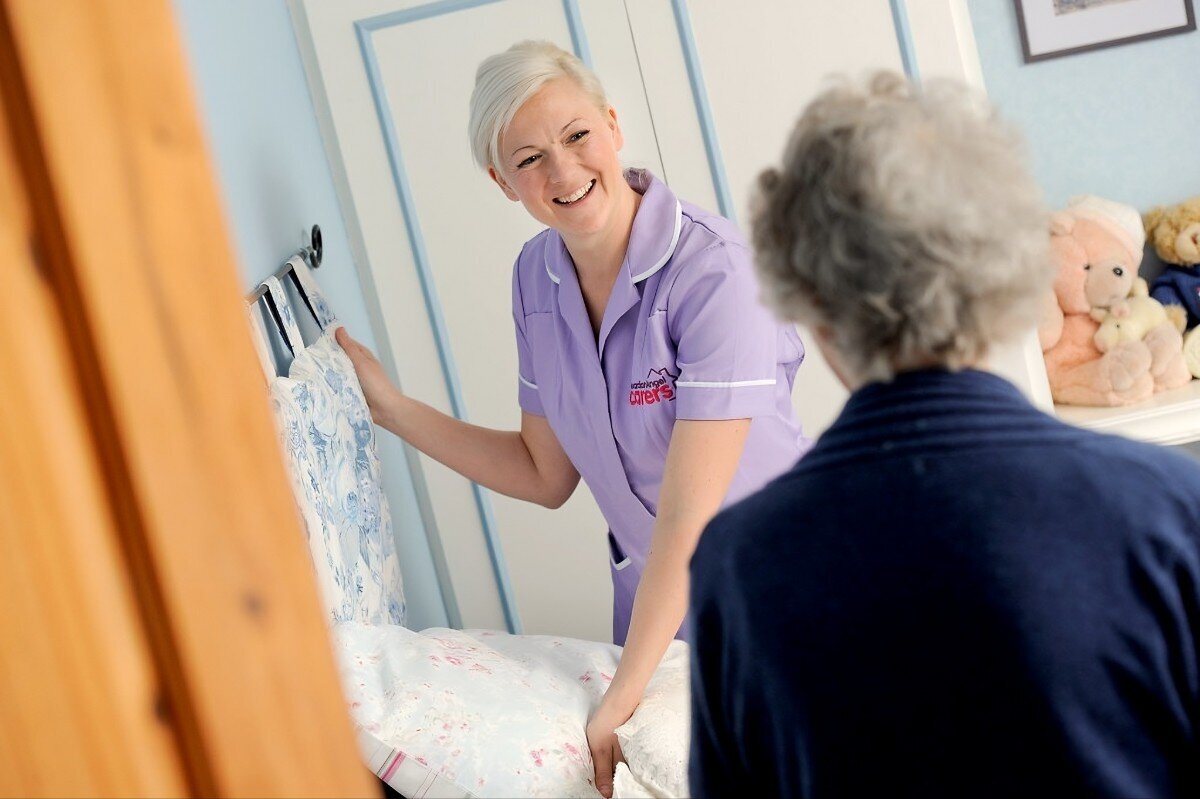
There is no doubt that caring for a loved one can be physically demanding, emotionally exhausting, and take a toll on a carer’s ability to continue their career, take time off for themselves, and prioritise their own self-care.
At its worst, the pressure of caring responsibilities, which might exist 24/7, can lead to burnout. In this serious situation, a carer reaches a point of exhaustion and fatigue where they cannot continue and may experience anxiety and depression.
The home care specialists at nationwide group Guardian Angel Carers, provides education about what carer burnout is, why it happens, and the signs to look out for if you, or a loved one, is performing a caring role.
Caregiver Burnout: What It Is and Why It Happens So Often
The first point we'd make is that almost every carer, whether they're supporting a partner or parent for a few hours a week or providing around-the-clock care for a loved one, experiences some degree of stress and tiredness.
Caring is physical, involving tasks such as lifting, supporting, walking, and helping a loved one in and out of seated positions. Care recipients also rely on their caregivers to manage a host of chores, from cooking and cleaning to pet care, grocery shopping, laundry, and keeping the home tidy.
A large proportion of carers are working adults who are performing these duties while also looking after their children and fulfilling demanding jobs. That means care routines can feel like working two full-time positions with no time whatsoever to relax and unwind.
However, it is also the emotional aspect of caring that can take a toll. It is rarely easy to be responsible for elements such as bathing, dressing and personal hygiene, and to experience a role reversal where a carer finds themselves looking after a parent or spouse in a way they had not foreseen.
This mixture of emotions and pressure points all contribute to the fact that as many as 60% of caregivers report some symptoms of burnout. Although the side effects can differ between people, the outcomes can be severe.
What Are the Signs That a Family Caregiver Is Approaching Burnout?
Every individual’s ability to manage stress will vary. Still, there are key indications that a caregiver needs immediate support, whether a break to recharge their batteries or regular assistance to take some of the burden off their shoulders.
These can range from physical signs, including emotional and physical exhaustion, often manifesting as difficulties in sleeping, losing interest in hobbies or family activities, losing weight without trying and becoming run down and more likely to catch viruses and bugs.
Other signs can include feelings of anxiety and depression and a sense of helplessness and withdrawal from relationships. That can mean being unable to concentrate and being overwhelmed with anger, frustration or irritability when this would have normally been out of character.
If you are a caregiver yourself, and you’ve noticed that you're continually insisting that you can cope or operating on 'auto pilot' without being able to spare a moment for your own welfare, you're likely heading towards burnout.
Our advice, as always, is to act well before any of these signs of burnout become pronounced, because the effects on caregivers' mental health, career prospects, and physical wellbeing worsen progressively, and it is essential that families get the help they need promptly.
How Should Families Respond When They Are Concerned About Their Ability to Continue Providing Care?
As we mentioned earlier, caring is demanding, especially when the person you are looking after depends solely on you. It is never a bad time to ask for support, or to recognise how stressful and isolating caring obligations can be.
Guardian Angel Carer’s CareAngels, who work from our territories around the UK, are highly trained, skilled professionals who have formal qualifications, mentoring, and back-up support systems in place – something we know is rarely the case for family caregivers.
Whatever the situation, you can ask for help from an experienced home care team, or from an organisation like Carers UK or your local council.
When we speak with families who have been managing some or all of the care of a loved one, often for extended periods of time, it’s hugely important we step in at the right time to alleviate the pressure, whether that means arranging respite care, organising a regular visiting care routine, or offering more involved overnight or live-in care support.
Home care is, of course, just one of the options, and you could consider an assisted living facility or residential care if you prefer. However, for many families, home-based care represents the best solution.
Understanding the Contrasts Between Respite and Visiting Home Care
We touched on some of the care structures that can prove a lifeline for family carers, and the right options and the amount of care we provide as a private team will depend entirely on you.
Respite care is often ideal and acts as a targeted support system. It can, for example, help family carers get time away or decide how much of the caring responsibilities for their loved one they are realistically able to manage, without compromising their health or sacrificing other areas of their lives.
That might mean a qualified carer takes over for a week at a time, handles specific periods when family caregivers need a holiday, or steps in to cover evening care requirements for as long or as little as is required.
Visiting care tends to be a more regular, ongoing service, where carers can drop in for any time increments from around 30 minutes onwards, sometimes once or twice a week, and in other scenarios for several hours per day, based on the individual’s care needs, and where we can add to their quality of life.
If you’re struggling with caring duties, want to chat with a friendly, knowledgeable team of home care experts, or would like more advice about the types of care we’ve mentioned, you’re very welcome to contact your nearest Guardian Angel Carers office, or browse through the varied guides and resources published via our website.
Read more about Guardian Angel Carers - Guardian Angel Carers Celebrates Dual Win After Cardiff and Reading Franchises Named Top 20 Home Care Providers
About Guardian Angel Carers
Guardian Angel Carers is a leading home care provider dedicated to delivering compassionate, personalised care services. With a strong focus on independence, dignity, and quality of life, the company supports individuals in the comfort of their own homes, offering a range of services from companionship to complex care needs.







